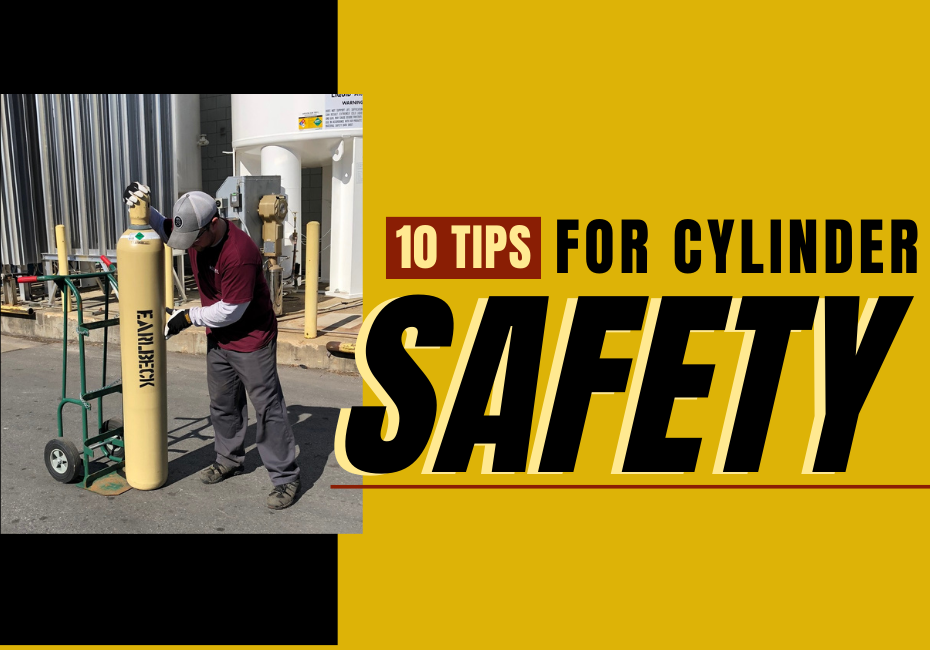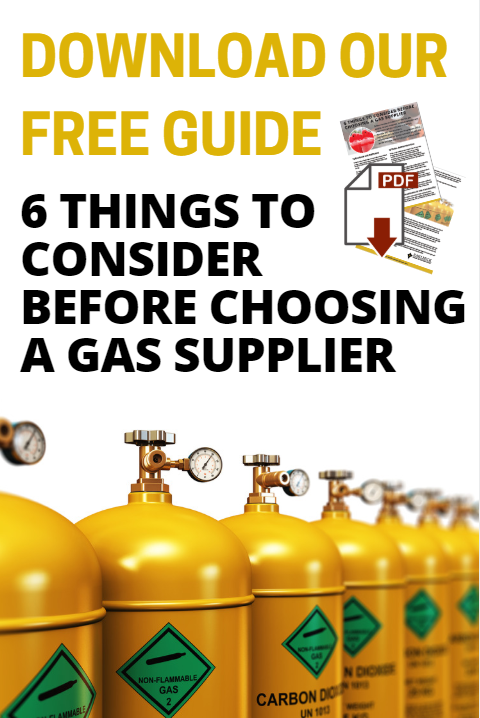| Compressed gas cylinders play a crucial role in a wide range of industries and applications, powering everything from welding torches to medical equipment. However, the power they hold also comes with inherent risks if they are not handled and used with care and attention. Here are 10 essential tips for maintaining compressed gas cylinder safety, ensuring the well-being of both workers and equipment! |
| Safety begins here! Before using any compressed gas cylinder, a thorough inspection is paramount. Carefully examine the cylinder for any signs of damage, corrosion, or leakage. Do not use compromised cylinders! Please notify your gas supplier if you notice any defects are present. |
| The right conditions matter! Creating a safe storage environment for cylinders is essential. Choose a well-ventilated area, away from direct sunlight, heat sources, flammable materials, and electrical equipment. Always store cylinders upright and secure them with chains or supports to prevent tipping hazards. Never roll, drag, or slide cylinders, even over short distances. |
| Guard against accidental activation! Keep the valve protective cap in place when the cylinder is not in use. This cap safeguards the valve from damage and accidental activation. Remember, never attempt to lift a cylinder by its valve protection cap! |
| Safety at your fingertips! When handling cylinder valves, ensure you're using the proper hand protection, such as gloves. Avoid using tools to force or tighten the valve. Only employ the designated valve key or wrench for that specific valve type. Never treat the cylinder valve as a handle for moving! |
| A gradual approach to safety! When opening cylinder valves, exercise patience. Slowly and gradually open the valve to prevent abrupt pressure surges that could lead to equipment damage or injuries. Fully open the valve only when you're prepared to use the gas. |
| Keep lubricants away! Never apply grease, oil, or any other lubricants to cylinder valves or fittings. These substances can react with certain gases and potentially trigger a fire or explosion. |
| Leave repairs to the professionals! In the event of a faulty or damaged cylinder valve, it's crucial to resist the temptation to repair or modify it yourself. Notify your gas supplier or a qualified professional immediately for proper assistance. |
| Stick to compatibility! Avoid using adapters or attempting to connect different gases. Each gas has a specific cylinder valve outlet connection. Mismatching these connections can result in hazardous reactions and contamination. |
| A step toward security! After using a cylinder, make certain to close the valve tightly. Turn the valve until it stops to ensure closure, but avoid overtightening. |
| Be ready! Familiarize yourself with the emergency procedures for dealing with gas cylinder incidents. Know the location of emergency equipment, including gas masks, eye wash stations, fire extinguishers, and emergency exits. |
| In conclusion, the importance of compressed gas cylinder valve safety cannot be overstated. Mishandling these cylinders can lead to disastrous consequences, endangering both people and equipment. By following these crucial tips, you're taking significant steps toward ensuring the well-being of your workforce and maintaining a safe work environment. Remember, always consult manufacturer guidelines, adhere to safety protocols, and seek professional assistance when required!  Safety information and posters are provided via the Compressed Gas Association. |
| Earlbeck is a PurityPlus partner and with PurityPlus, you can guarantee you’ll receive certified quality from the most reliable independent distributors! Reach out below or by phone (410) 687-8400 today for all of your gas questions and needs! |















 RSS Feed
RSS Feed